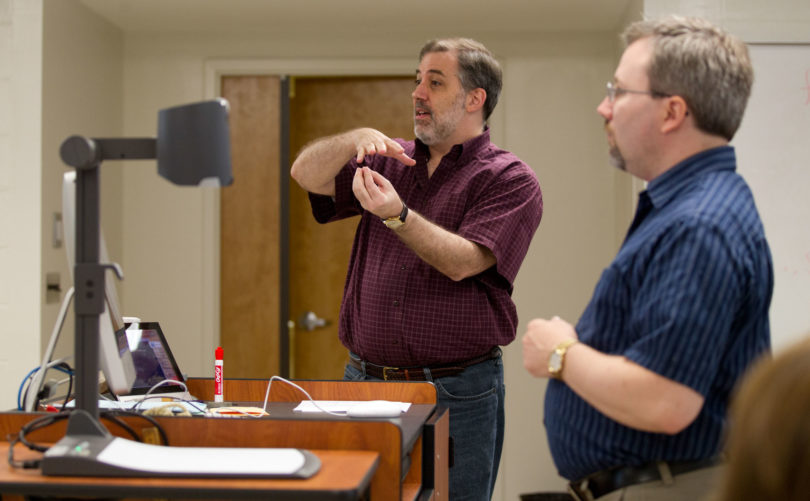The 2014 Creative Teaching Awards were presented April 7 to faculty members Norris Armstrong, Steven Lewis and Craig Wiegert, in the Franklin College of Arts and Sciences, and Marisa Anne Pagnattaro, in the Terry College of Business, during the Faculty Recognition Banquet.
Presented by the Office of the Vice President for Instruction, the awards recognize UGA faculty for excellence in developing and implementing creative teaching strategies to improve student learning. Up to three awards are presented annually to encourage instructional excellence. Lewis and Wiegert were co-recipients.
“Our faculty are continually challenged to develop new teaching methods to engage students in an ever-changing learning environment,” said Laura Jolly, vice president for instruction. “The recipients of the Creative Teaching Award demonstrate our faculty’s commitment for improving student learning.”
This year’s recipients have extended teaching practices to a variety of platforms and fields. Armstrong’s research focuses on developing and testing novel methods for teaching large biology classes. His pursuit of creative approaches includes writing-to-learn, cooperative learning, inquiry-based learning and student peer-mentors for supplemental instruction. He consistently incorporates assessment of these approaches into his instructional plans.
Pagnattaro, a Meigs Professor, strives to teach her students to appreciate how the law affects their careers, lives and the world around them. She draws on students’ study-abroad experiences to add depth to discussions on law and culture. She engages students in critical thinking and analysis to illuminate the complex issues facing businesses as they navigate legal and ethical issues in the global marketplace.
Lewis and Wiegert create active learning environments to engage students in learning complex physics principles through their innovative SCALE-UP classrooms. Their teaching approach aims to bring a hands-on, small-class approach to larger-sized classes and to present physics concepts through group activity and instructor engagement. They engage students through group-work and technology to increase student-to-student and student-to-teacher interaction in the classroom.





